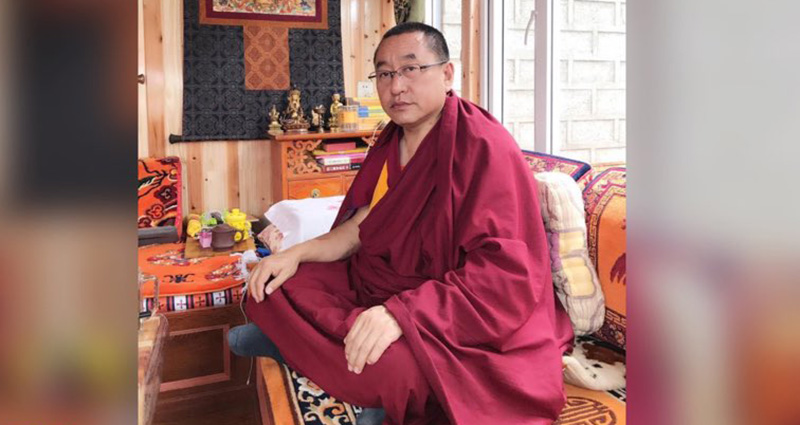Dharamshala, India — Chinese authorities sentenced a Tibetan monk from Kriti Monastery in Ngaba County, eastern Tibet, to two years in prison for allegedly sending money abroad to seek the protection and prayers for his family from His Holiness the Dalai Lama and Kriti Rinpoche.
According to a reliable source, the Chinese authorities arrested Geshe Sonam Gyatso on April 3, 2021, in Chengdu, Sichuan Province, where he was on holiday. After more than a year in detention, he was sentenced to two years in prison for allegedly sending money abroad.
“Geshe Sonam Gyaltso, from Kriti Monastery, Ngaba County, Eastern Tibet (Chinese: Aba, Sichuan), was arrested by Chinese authorities on April 3, 2021 in Chengdu, Sichuan Province, while on holiday. He then placed in a detention centre near Bakhang and interrogated, held for over a year. Recently, he was sentenced to two years in prison,” a source told TPI, on condition of anonymity.
“The Chinese authorities raided his mobile phone and found that he had sent money abroad (India) to seek protection and prayers from His Holiness the Dalai Lama and Kriti Rinpoche for his family members, a Chinese court later sentenced him to two years in prison and he is serving his sentence in Mianyang prison, near Chengdu, ” the source added.
According to the source, Geshe Sonam Gyaltso became a monk at a young age and studied Buddhism at Kriti Monastery, obtaining the Geshe degree (a high academic degree in Buddhist philosophy). Afterwards, he worked in the monastic department and became a mentor (one who enforces discipline in a monastery) at the monastery. During his work for the monastery he encountered many problems with the local Chinese authorities.
“Geshe Sonam's older sister, Tsering Lhamo, was also detained by the Chinese authorities a year ago for an unknown reason. She worked at a bank in Ngaba County. Other details are unknown, including where she was detained, whether she is sentenced or not, her health status, etc,” the source said.
Over the past 70 decades, there has been ongoing political repression, social discrimination, economic marginalization, environmental destruction, and cultural assimilation, particularly due to Chinese migration to Tibet which is fueling intense resentment among the people of occupied Tibet.
The communist-totalitarian state of China began its invasion of Tibet in 1949, reaching complete occupation of the country in 1959. Since that time, more than 1.2 million people, 20% of the nation's population of six million, have died as a direct result of China's invasion and occupation. In addition, over 99% of Tibet's six thousand religious monasteries, temples, and shrines, have been looted or decimated resulting in the destruction of hundreds of thousands of sacred Buddhist scriptures.
Until 1949, Tibet was an independent nation in the Himalayas which had little contact with the rest of the world. It existed as a rich cultural storehouse — a unifying theme among the Tibetans — as was their own language, literature, art, and worldview developed by living at high altitudes, under harsh conditions, in a balance with their environment.


![Tibet has a rich history as a sovereign nation until the 1950s when it was invaded by China. [Photo: File]](/images/stories/Pics-2024/March/Tibet-Nation-1940s.jpg#joomlaImage://local-images/stories/Pics-2024/March/Tibet-Nation-1940s.jpg?width=1489&height=878)


















